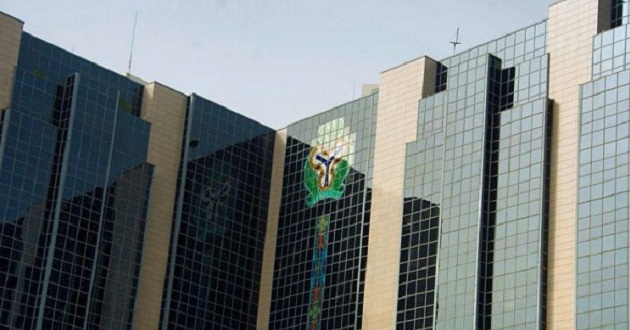Business
CBN injected $39bn into forex market to stabilize naira In 2018

The Central Bank of Nigeria’s (CBN’s) fourth quarter economic report has revealed that about $39.9 billion was injected into the foreign exchange market to defend the Naira between January and December 2018.
The CBN makes regular dollar injections into the foreign exchange market which helps the apex bank achieve long-term naira stability and curb volatility in the forex market. The CBN usually injects liquidity about three times a week.
The intervention is provided to authorise dealers in the wholesale segment of the market, as well as other sectors of the economy such as agriculture, manufacturing and Small and Medium Enterprises segment.
Customers that required foreign exchange for invisibles such as tuition fees, medical payments and Basic Travel Allowance, among others, are also allocated funds from the intervention.
The report read in part, “A total of $9.18bn was sold by the CBN to authorised dealers in the fourth quarter of 2018.
READ ALSO: Thugs destroy election materials in Nasarawa, invade police barracks
“This represents 16.1 per cent decline below the level in the third quarter of 2018, but was 80.6 per cent above the level in the corresponding period of 2017.
“The development, relative to the preceding quarter, reflected the decline in interbank sales and swaps transactions in the review quarter.
“Of the total, foreign exchange forwards disbursed at maturity was $3.15bn (34.3 per cent); sales to BDCs, $2.98bn (32.5 per cent); investors’ and exporters’ window, $2.09bn (22.8 per cent); interbank sales, $820m (8.7 per cent); and swaps transactions, $0.13bn (1.5 per cent).
“However, the average exchange rate of the naira vis-à-vis the United States dollar at the interbank segment depreciated by 0.2 per cent to N306.70/US$, relative to the level at end-September 2018.
“Similarly, at the BDC segment, the average exchange rate, depreciated by 0.9 per cent and 0.01 per cent below the levels in the preceding quarter and the corresponding period of 2017 to N362.42/$.
“At the investors’ and exporters’ window segment, the average exchange rate stood at N364.27/$, representing 0.5 per cent and one per cent depreciation relative to the levels in the preceding quarter and the corresponding period of 2017, respectively.
“Consequently, the premium between the average interbank and BDC rates widened by 0.8 percentage points in the review quarter, from 18.2 percentage points at the end of the fourth quarter of 2018, but the spread between the average exchange rates at the investors’ and exporters’ window and the BDC segment narrowed further to 0.5 per cent from 0.9 per cent at the end of the preceding quarter.”
An analysis of the report showed that foreign exchange inflow into the economy increased by 2.8 per cent to $27.64bn as of the end of December last year.
The increase in foreign exchange inflow was as a result of the 12.3 per cent increase in inflow through the CBN.
Oil sector receipts, which accounted for $3.02bn, showed a decrease of 14.5 per cent below the level at the end of the preceding quarter.
The report stated that with $11.49bn as of December 31 last year, non-public sector inflow rose by 22.5 per cent above the third quarter levels.
A further analysis of the report showed that autonomous inflow of foreign exchange was put at $13.13bn, which fell 6.1 per cent below the levels at the end of the preceding quarter.
By Precious Akpadaka…
Join the conversation
Support Ripples Nigeria, hold up solutions journalism
Balanced, fearless journalism driven by data comes at huge financial costs.
As a media platform, we hold leadership accountable and will not trade the right to press freedom and free speech for a piece of cake.
If you like what we do, and are ready to uphold solutions journalism, kindly donate to the Ripples Nigeria cause.
Your support would help to ensure that citizens and institutions continue to have free access to credible and reliable information for societal development.






















